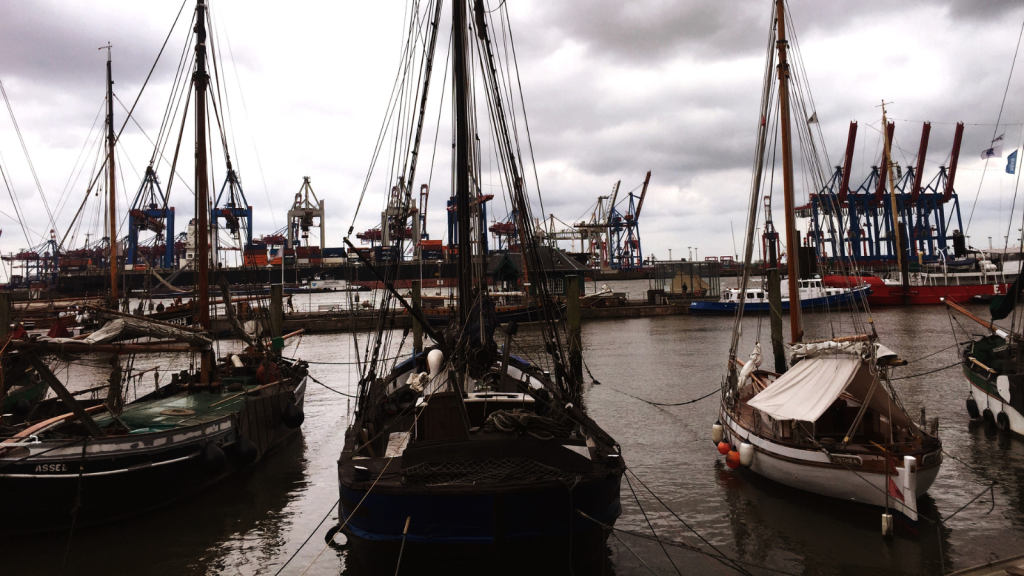Sailors have always been a superstitious bunch, and for good reason. When you’re out at sea, surrounded by nothing but water, the smallest misstep can lead to disaster. Over time, sailors started connecting events with omens, creating a fascinating mix of myths and warnings. But here’s the kicker—some of those old beliefs actually had a kernel of truth to them. Science, in all its glory, often catches up with these ancient ideas, shedding light on why they might have seemed so eerily accurate.
Let’s journey into the world of maritime lore to uncover 14 superstitions that turn out to have solid reasoning behind them. You might just find yourself thinking twice before scoffing at these age-old beliefs!
Whistling on Board Brings Storms

Sailors believed whistling could “call up the wind,” potentially leading to a storm. Scientifically, while whistling itself doesn’t conjure a squall, the sound could carry to crew members who might interpret subtle wind shifts as brewing weather changes. Early detection of such shifts was crucial for survival, so perhaps whistling wasn’t so much the problem as the tension it added during risky weather.
Bananas on Board Are Bad Luck

This superstition was common in the Caribbean, where ships carrying bananas often seemed cursed with trouble. In reality, bananas ripen quickly and release ethylene gas, which can spoil other produce. Additionally, their fast decomposition could attract pests, making them a real headache on long voyages.
Red Skies in the Morning Are a Bad Omen

The saying “Red sky at night, sailor’s delight; red sky in the morning, sailors take warning” is more than poetic. It’s based on atmospheric science. A red sunrise means light is passing through moisture-laden air, often signaling an approaching storm system from the west.
Cats Are Good Luck on Ships

Many sailors thought cats protected ships from harm. This belief has a practical basis—cats kept rodent populations under control, preventing the spread of diseases like plague and protecting food supplies. Plus, their sensitive ears could detect shifts in weather patterns, sometimes alerting sailors before storms hit.
Avoid Setting Sail on Fridays

Fridays were considered unlucky for beginning a voyage, and some tied this to religious reasons, as it was believed Christ was crucified on a Friday. However, research into shipwreck patterns has shown slightly higher accident rates on Fridays, possibly due to crew members rushing preparations to get started before the weekend.
Don’t Change the Name of a Ship

Changing a ship’s name was thought to anger the sea gods. While the science is less direct here, records show renamed vessels often had histories of accidents. This could simply be due to bad record-keeping when tracking maintenance or prior incidents under the original name.
Rats Leaving a Ship Is a Bad Omen

Seeing rats abandon ship was a sure sign of impending doom for sailors. Scientifically, this holds up: rats are sensitive to environmental changes, including subtle vibrations or leaks that could indicate structural damage. Their exodus often meant trouble was indeed brewing.
Women on Board Are Bad Luck

The belief that women were bad luck on ships was rooted in patriarchal superstition, but some point to the practical reasons behind it. Gender tensions in close quarters could create distractions or conflicts, potentially impacting the crew’s focus and teamwork.
Dolphins Swimming Near the Ship Are a Good Sign

Sailors rejoiced when dolphins swam alongside their vessels, interpreting it as a sign of safety. While it’s true dolphins are social creatures, their presence often coincides with healthy, fish-rich waters—an excellent sign for sailors hoping for steady food sources.
Never Leave Port on the 13th

The number 13 has long been associated with bad luck, and sailors avoided it like the plague. Interestingly, statistics show fewer ships did leave on the 13th, leading to fewer documented incidents—a self-fulfilling prophecy.
Albatrosses Must Never Be Harmed

Killing an albatross was thought to bring dire misfortune, immortalized in Samuel Taylor Coleridge’s “The Rime of the Ancient Mariner.” Scientifically, albatrosses are important ecological indicators. Harm to these birds could disrupt ecosystems, potentially making waters less predictable for navigation.
Don’t Step Onto a Ship With Your Left Foot First

Superstition held that stepping on board with your left foot first invited bad luck. While this might seem like pure myth, studies in biomechanics suggest people with dominant right legs may struggle slightly to balance when leading with their left—small wobbles could lead to accidents on slippery decks.
Glass Bottles Are a Bad Omen

Sailors believed breaking glass at sea spelled disaster. From a practical standpoint, broken glass posed serious hazards aboard ships with minimal medical resources, and its sharp edges could easily puncture sails or supplies.
Never Say “Drown” or “Goodbye”

Certain words were considered taboo on ships. Saying “drown” or “goodbye” was thought to tempt fate. While there’s no science behind this, it’s easy to see how avoiding negative language might improve morale and mental focus, reducing errors and accidents.
Ellen has been obsessed with logic puzzles, jigsaws, and cryptograms since she was a kid. After learning she was taught how to play chess wrong by a family friend (so they could win), she joined her school chess club and the rest is history.


